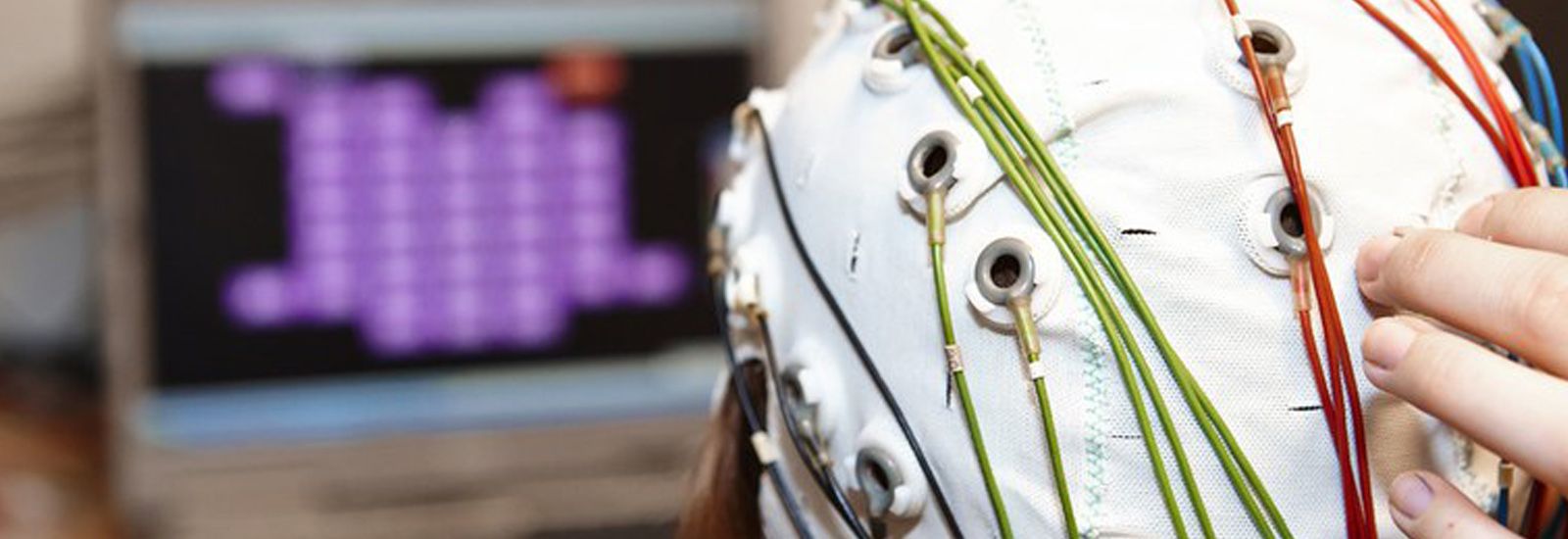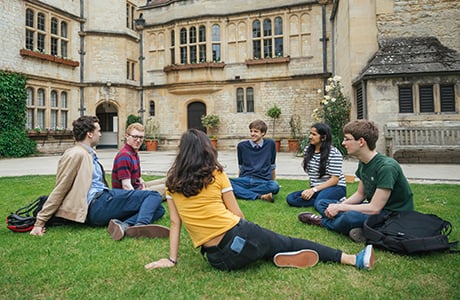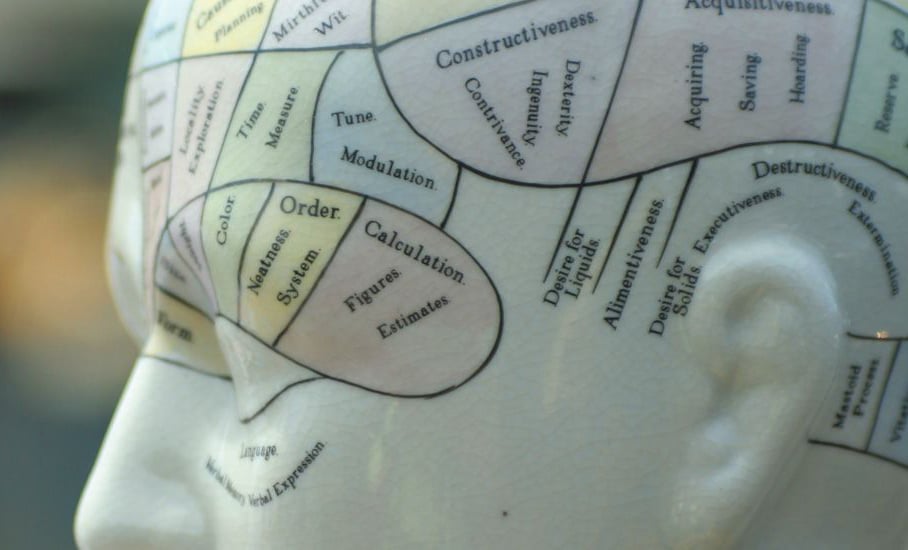
Psychology (Experimental)
Course overview
UCAS code: C830
Entrance requirements: A*AA
Course duration: 4 years (MSci in Experimental Psychology); 3 years (BA).
Subject requirements
Required subjects: Not applicable
Recommended subjects: One or more science subjects (including Psychology) or Maths
Helpful subjects: Not applicable
Other course requirements
Admissions tests: TSA (Section 1)
Written Work: None
Admissions statistics*
Interviewed: 36%
Successful: 13%
Intake: 50
*3-year average 2022-24
Contact
Tel: +44 (0) 1865 271353
Email: admissions@psy.ox.ac.uk
Unistats information for this course can be found at the bottom of the page
Please note that there may be no data available if the number of course participants is very small.
About the course
Psychology has been defined as the science of mental life and its scope includes a wide variety of issues. It addresses such questions as: how do we perceive and understand the world around us? How do children acquire language? What predisposes two people to get on with each other? What causes schizophrenia?
Psychology at Oxford is a scientific discipline, involving the rigorous formulation and testing of ideas. It works through experiments and systematic observation rather than introspection.
The Oxford Experimental Psychology Department is widely regarded as one of the leading psychology departments in the UK. The department’s size and its commitment to excellence in teaching and research means there are typically four or five research seminars each week, in addition to undergraduate lectures and classes.
At present, there are particularly strong research groups in the fields of human cognitive processes, neuroscience, language, developmental psychology, social psychology and psychological disorders.
Students can elect to graduate after three years with a BA degree. Alternatively, they can decide to remain for an optional fourth year composed of a research-intensive, clinically-focused or translation-focused extended project.
Students who complete the fourth year will graduate with a Master’s degree in Experimental Psychology.
Fieldwork/international opportunities
A wide choice of research projects is available to students in their third and fourth years, including experimental, clinical or translational projects involving collaborations with other departments and outside the University.
Experimental Psychology has excellent facilities and very close links with neuroscience, including neurophysiology and neurology, as well as the Philosophy and Linguistics Departments.
Students benefit from the department being one of Britain’s most active centres for psychological research, with an outstanding international reputation.
 |  | |
'I chose the course here because it is strongly rooted in experimental methods and you’re given the chance to talk to the people who are at the top of their field and are involved in current research which is changing the face of psychology. I still find it amazing that you’ll learn about a fascinating experiment in lectures and then realise that the person giving your tutorials or lectures headed that research team! Katrina | 'I had a tutorial in second year on deciphering the neural basis of semantic knowledge. After an hour, the tutor paused and asked us if we wished to continue, since the discussion was so invigorating and we were all passionately debating the subject. My tutorial partner and I gladly agreed to continue the tutorial for longer. A few hours later I cycled back to college with my head full of curiosity and inspiration, and spent the evening in the library researching more! It was wonderful, and exemplary of how the tutorial system can inspire and prompt many new ideas between professors and students. Eloise |
Unistats information
Discover Uni course data provides applicants with Unistats statistics about undergraduate life at Oxford for a particular undergraduate course.
Please select 'see course data' to view the full Unistats data for Psychology.
Please note that there may be no data available if the number of course participants is very small.
Visit the Studying at Oxford section of this page for a more general insight into what studying here is likely to be like.
Psychology (Experimental)
A typical week
- Terms 1-3: about six lectures, two or three tutorials or one practical class.
- Terms 4-9: usually six lectures, one or two tutorials and one practical class. You will also undertake independent research and be given the opportunity to write a dissertation.
- Terms 10-12 (MSci): almost exclusive focus on an extended research or translational project with complementary advanced and critical skills training.
Tutorials usually involve two to four students and a tutor. Class sizes for laboratory classes may vary depending on the options you choose. Core lab classes which are attended by most students will usually be in groups of 35-40 students. Multiple demonstrators will usually attend to assist the staff who are leading these classes. There are usually no more than around 20 students for final-year specialist options.
Most tutorials, classes, and lectures are delivered by staff who are experts in the subject they tutor. The majority of staff are world-leading experts with years of experience in teaching and research. Some teaching may also be delivered by postgraduate students who are usually studying at doctoral level, and are specialists in those topics.
To find out more about how our teaching year is structured, visit our Academic Year page.
Course structure
Terms 1-3 (Year 1)
Courses | Assessment |
|---|---|
Three introductory courses are taken out of:
| First University examinations: papers in each of the three introductory courses taken, one of which is Probability theory and statistics |
Terms 4-6 (Year 2)
Courses | Assessment |
|---|---|
Students will study core subjects in Psychology covering:
| Final University examinations, Part A: written and short answer papers, covering all core subjects; practical portfolio |
Terms 7-9 (Year 3)
Courses | Assessment |
|---|---|
Students will choose:
Students carry out practical work relevant to Psychology and career development skills:
| Final University examinations, Part B: practical portfolio or communication skills portfolio; three written papers (or two written papers and a library dissertation; or two written papers and a research project) |
Terms 10-12 (Year 4, MSci in Experimental Psychology)
Structure | Assessment |
|---|---|
In terms 10 and 11, students receive skills based training relevant to their extended project. | Students submit an extended project report. Students also submit their current opinion review. |
Available options will reflect the department’s current research which means they may change each year. The options available will cover the core subjects listed above.
The content and format of this course may change in some circumstances. Read further information about potential course changes.
Academic requirements
Qualification | Requirement |
|---|---|
A-levels: | A*AA |
Advanced Highers: | AA/AAB |
International Baccalaureate (IB): | 39 (including core points) with 766 at HL |
Any other equivalent qualification: | View information on other UK qualifications, and international qualifications. |
Wherever possible, your grades are considered in the context in which they have been achieved.
Read further information on how we use contextual data.
Subject requirements
Recommended: | It is highly recommended for candidates to have studied one or more science subjects (which can include Psychology) or Mathematics to A-level, Advanced Higher, Higher Level in the IB or another equivalent.
|
|---|
If a practical component forms part of any of your science A‐levels used to meet your offer, we expect you to pass it.
If English is not your first language you may also need to meet our English language requirements.
Applying
All candidates must follow the application procedure as shown on our Applying to Oxford pages.
The following information gives specific details for students applying for this course.
Admissions tests
Test: | TSA (Section 1) |
|---|---|
Test dates: | 21, 22, 23, 24 & 27 October 2025 |
Registration window: | To be confirmed |
All candidates must take the Thinking Skills Assessment (TSA) as part of their application.
All the information you need to arrange to take your test as well as how best to prepare can be found on your test page.
Written work
You do not need to submit any written work as part of an application for this course.
What are tutors looking for?
In addition to a very good academic record, tutors are keen to see whether you appreciate the scope of scientific psychology. They will also want to check whether you can evaluate evidence, are able to consider issues from different perspectives, have a capacity for logical and creative thinking, appreciate the importance of empirical evidence in supporting arguments, and could cope with the demands of the course.
Visit the Experimental Psychology website for more detail on the selection criteria for this course.
Careers
Experimental Psychology graduates enter a wide range of careers including:
- professional psychology
- education
- research
- medicine
- the health services
- finance
- commerce
- industry
- the media
- information technology
Both the BA in Experimental Psychology (EP) and the MSci in EP degrees are accredited by the British Psychological Society for the Graduate Basis for Chartered Membership, provided you achieve the minimum standard of second class honours as well as pass the experimental project element in the third or fourth year of study.
During her time as a client consultant at Nunwood, Experimental Psychology graduate, Rachel said:
‘Since graduating I have worked for two large market research companies specialising in brands and advertising research. My degree helped me to develop my analytical skills as well as gaining project management experience which have been invaluable in my chosen career path.’
Whilst working as a Graduate Research Assistant at Oxford’s Department of Experimental Psychology, Lauren said:
‘Studying EP gave me the opportunity to conduct my own research project from its inception, from recruiting participants, to collecting and analysing data, and writing it up in a report. These skills have been invaluable to me in my job as a research assistant, as it involves co-ordinating a large number of participants taking part in a randomised control trial, and handling large amounts of data.’
Note: These annual fees are for full-time students who begin this undergraduate course here in 2025. Course fee information for courses starting in 2026 will be updated in September.
We don't want anyone who has the academic ability to get a place to study here to be held back by their financial circumstances. To meet that aim, Oxford offers one of the most generous financial support packages available for UK students and this may be supplemented by support from your college.
Fees
Fee status | Annual Course fees |
| Home | £9,535 |
| Overseas | £51,880 |
Further details about fee status eligibility can be found on the fee status webpage.
For more information please refer to our course fees page. Fees will usually increase annually. For details, please see our guidance on likely increases to fees and charges.
Living costs
Living costs at Oxford might be less than you’d expect, as our world-class resources and college provision can help keep costs down.
Living costs for the academic year starting in 2025 are estimated to be between £1,425 and £2,035 for each month you are in Oxford. Our academic year is made up of three eight-week terms, so you would not usually need to be in Oxford for much more than six months of the year but may wish to budget over a nine-month period to ensure you also have sufficient funds during the holidays to meet essential costs. For further details please visit our living costs webpage.
Financial support
Home | A tuition fee loan is available from the UK government to cover course fees in full for Home (UK, Irish nationals and other eligible students with UK citizens' rights - see below*) students undertaking their first undergraduate degree**, so you don’t need to pay your course fees up front. In 2025 Oxford is offering one of the most generous bursary packages of any UK university to Home students with a family income of around £50,000 or less, with additional opportunities available to UK students from households with incomes of £32,500 or less. The UK government also provides living costs support to Home students from the UK and those with settled status who meet the residence requirements. *For courses starting on or after 1 August 2021, the UK government has confirmed that EU, other EEA, and Swiss Nationals will be eligible for student finance from the UK government if they have UK citizens’ rights (i.e. if they have pre-settled or settled status, or if they are an Irish citizen covered by the Common Travel Area arrangement). The support you can access from the government will depend on your residency status. |
Islands | Islands students are entitled to different support to that of students from the rest of the UK. Please refer the links below for information on the support to you available from your funding agency: |
Overseas | Please refer to the "Other Scholarships" section of our Oxford Bursaries and Scholarships page. |
**If you have studied at undergraduate level before and completed your course, you will be classed as an Equivalent or Lower Qualification student (ELQ) and won’t be eligible to receive government or Oxford funding
Additional Fees and Charges Information for Psychology (Experimental)
There are no compulsory costs for this course beyond the fees shown above and your living costs.
Contextual information
Unistats course data from Discover Uni provides applicants with statistics about a particular undergraduate course at Oxford. For a more holistic insight into what studying here is likely to be like, please view the information below and explore our website more widely.
The Oxford tutorial
College tutorials are central to teaching at Oxford. Typically, they take place in your college and are led by your academic tutor(s) who teach as well as do their own research. Students will also receive teaching in a variety of other ways, depending on the course. This will include lectures and classes, and may include laboratory work and fieldwork. However, tutorials offer a level of personalised attention from academic experts unavailable at most universities.
During tutorials (normally lasting an hour), college subject tutors will give you and one or two tutorial partners feedback on prepared work and cover a topic in depth. The other student(s) in your tutorials will typically be doing the same course as you and covering the same topic. Such regular and rigorous academic discussion develops and facilitates learning in a way that isn’t possible through lectures alone. Tutorials also allow for close progress monitoring so tutors can quickly provide additional support if necessary.
Read more about tutorials and an Oxford education
College life
Our colleges are at the heart of Oxford’s reputation as one of the best universities in the world.
- At Oxford, everyone is a member of a college as well as their subject department(s) and the University. Students therefore have both the benefits of belonging to a large, renowned institution and to a small and friendly academic community. Each college or hall is made up of academic and support staff, and students. Colleges provide a safe, supportive environment leaving you free to focus on your studies, enjoy time with friends and make the most of the huge variety of opportunities.
- Each college has a unique character, but generally their facilities are similar. Each one, large or small, will have the following essential facilities:
- Porters’ lodge (a staffed entrance and reception)
- Dining hall
- Lending library (often open 24/7 in term time)
- Student accommodation
- Tutors’ teaching rooms
- Chapel and/or music rooms
- Laundry
- Green spaces
- Common room (known as the JCR).
- All first-year students are offered college accommodation either on the main site of their college or in a nearby college annexe. This means that your neighbours will also be ‘freshers’ and new to life at Oxford. This accommodation is guaranteed, so you don’t need to worry about finding somewhere to live after accepting a place here, all of this is organised for you before you arrive.
- All colleges offer at least one further year of accommodation and some offer it for the entire duration of your degree. You may choose to take up the option to live in your college for the whole of your time at Oxford, or you might decide to arrange your own accommodation after your first year – perhaps because you want to live with friends from other colleges.
- While college academic tutors primarily support your academic development, you can also ask their advice on other things. Lots of other college staff including welfare officers help students settle in and are available to offer guidance on practical or health matters. Current students also actively support students in earlier years, sometimes as part of a college ‘family’ or as peer supporters trained by the University’s Counselling Service.
FIND OUT MORE

Our 2025 undergraduate Open Days will be held on 2 and 3 July and 19 September.
Register to find out more about our upcoming Open Days.
World-Leading Research
Oxford Psychology, in combination with Psychiatry and Neuroscience, achieved outstanding results in the most recent (2021) Research Excellence Framework. 95% of our research was classified as world-leading or internationally excellent in terms of its originality, significance and rigour.
We also scored 100% for the quality of our research and training environment.
RELATED PAGES
 The British Psychological Society
The British Psychological Society
Accredited
